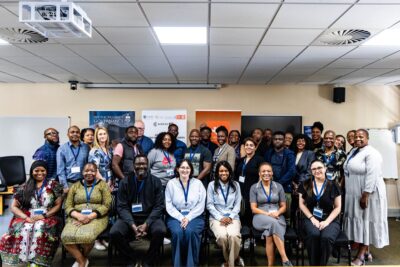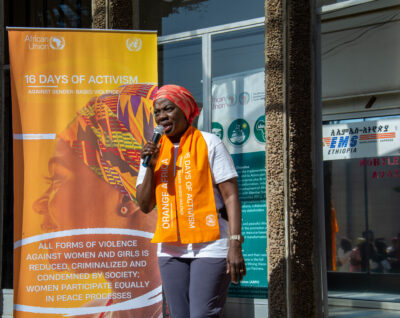“The work alludes to constellations that make up our collective differences but that are often bridged by the human experience: struggles, ethnicity, race, culture, spirituality, religion.”
—william cordova, on his work “walls turned sideways are bridges” pictured above
American society is a house divided. Yes, things have been worse at various points in the country’s history, but that is not saying much. We are more divided than we have been in decades, cleaved asunder by partisan sorting, economic inequality, and globalization. These forces have been further exacerbated by new technologies that facilitate the laser-speed proliferation of inaccurate information that has had deleterious consequences for many people and pits different groups of Americans against one another. If history is any guide, a society cannot long withstand this state of affairs.
Of course, Americans are accustomed to spirited disagreement between citizens with starkly different viewpoints and values, including people of various faiths and no faith, who imagine the world in starkly different ways and embrace different fundamental truths. On one hand, these differences may seem nearly impossible to resolve, since many are at their root epistemological, meaning neither side regards the other’s evidence or processes of discerning truth as legitimate. On the other hand, religiously diverse societies have been able to thrive, despite these deep divides.
Such thriving occurs not only because of a society’s institutionalized commitment (in word if not always deed) to religious freedom; it is also because liberal ideals of good citizenship require we commit to the often-frustrating process of trying to work out our differences, religious and otherwise. In practice, this process is not always polite or rational; it involves both dialogue and protest, and is animated by ideas and emotions alike. What seems to matter is that participants regard one another, first and foremost, as fellow citizens and humans—in the philosopher Martin Buber’s words, as parties to I-thou rather than I-it relationships.
One concern, then, is how to create a public life built around these kinds of relationships, particularly when we seem to be moving in the opposite direction, depleting the trust required for such relationships. Indeed, we have increasingly sorted ourselves into different social worlds—we live, work, eat, socialize, pray, read, and talk with others who share many of our experiences and viewpoints. We not only live in these distinctive social worlds, we interpret life through distinctive lenses shaped and informed by our social worlds. Members of each world perceive events differently, look to different people as credible sources of information, and view different groups as allies and enemies. We do not even share a basic set of facts about what happens.
In this context, calls for more dialogue come up against a problem: participants present themselves as unquestionably right and act as if they have nothing to learn from one another. Moreover, many people view those with whom they disagree as not only wrong but even brainwashed, stupid, and incapable of reason; not only different, but undemocratic and treasonous. There is, in short, nothing to discuss.
Some religious communities have contributed to this crisis of arrogance, encouraging their flocks to enter public life with moral certainty, unwilling to hear others’ concerns or compromise on partial solutions. It is in part this image of religion as the domain of intolerant ideologues and theocrats that has driven many Americans away from religious affiliation of any kind. But this image does not tell the whole story.
A view of public religion as intolerant ignores those religious communities whose strong moral convictions have led them to protest on behalf of causes that are now widely viewed as central to American democracy, like abolition and civil rights. Religious communities can also supply members with practices, rituals, and habits that encourage intellectual, or epistemic, humility—in other words, which encourage them to view their fellow citizens as equal members of their shared community, striving together for better responses to shared problems. This requires that they be open to the possibility that they may be wrong, and that their understanding of the world could be improved by listening closely to other citizens, even those with whom they disagree vehemently.
In this series, scholars and practitioners attend to these varied ways in which religious individuals and groups engage in public life, and in particular how they balance their responsibilities as members of particular faith communities and as citizens of a religiously diverse nation. They consider how strong religious conviction can encourage greater political arrogance, but also greater humility; can encourage the building of walls, but also of bridges. They also challenge the assumption that the former qualities are necessarily problematic, revealing how moral righteousness has supported prophetic resistance and encouraged demands for equality, just as moral relativism has made it difficult to define even deeply undemocratic behavior as problematic.
The lessons these essays offer also matter beyond religious groups, as they shed light more generally on how people overcome political, moral, interpretive, and epistemic disagreements. Although the essays vary significantly in their level of optimism about Americans’ capacity to resolve the issues that currently divide them, they nonetheless offer grounded examples of how a range of groups are trying—sometimes with success—to do so.
This essay forum emerged out of a conference sponsored by the Humility & Conviction in Public Life Project of the UConn Humanities Institute. For more information about this project, visit: http://humilityandconviction.uconn.edu.













